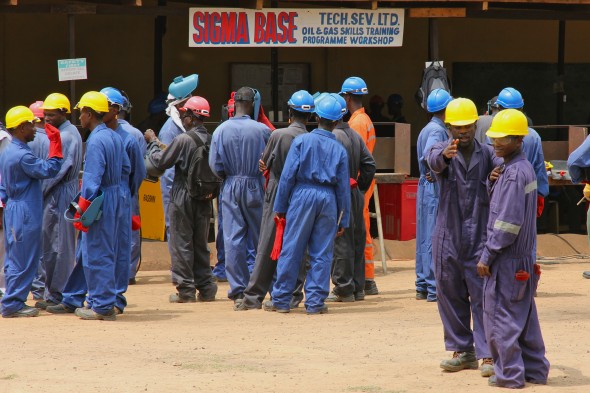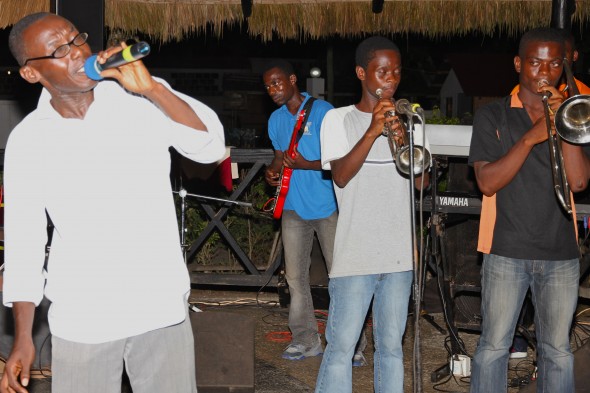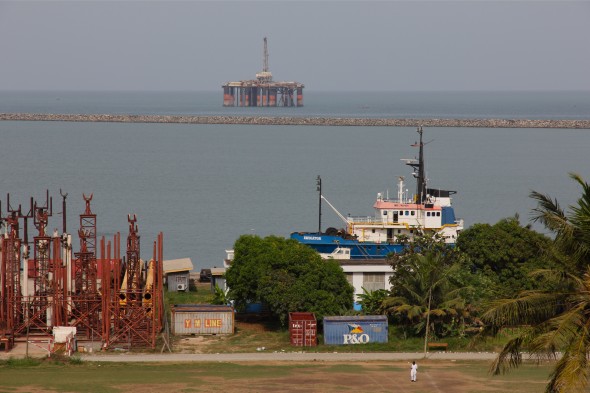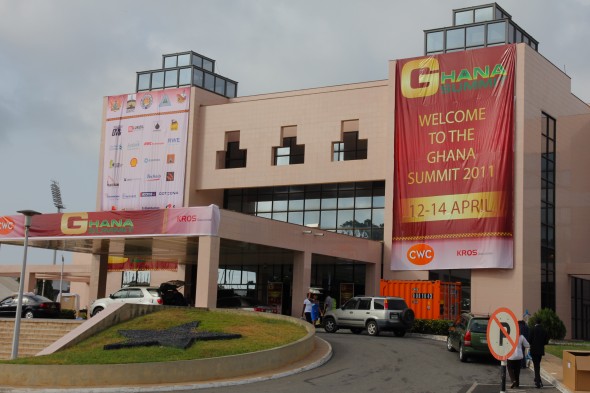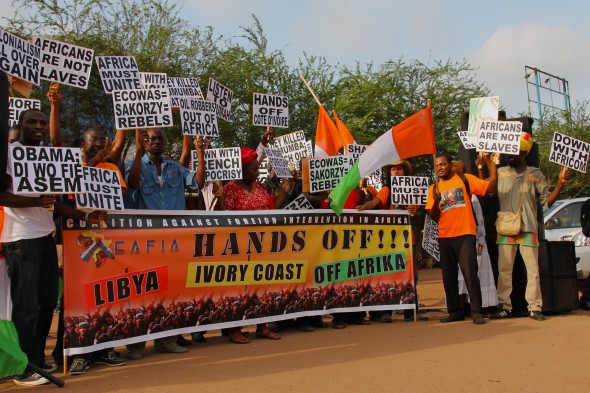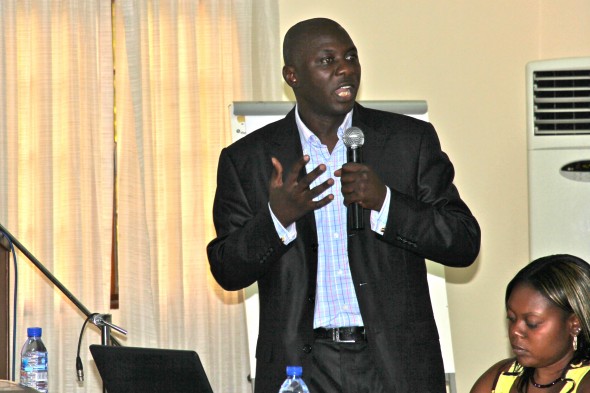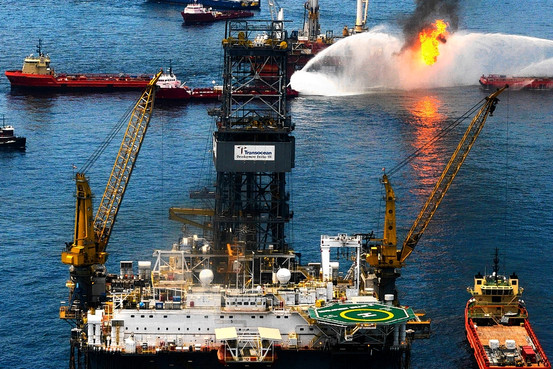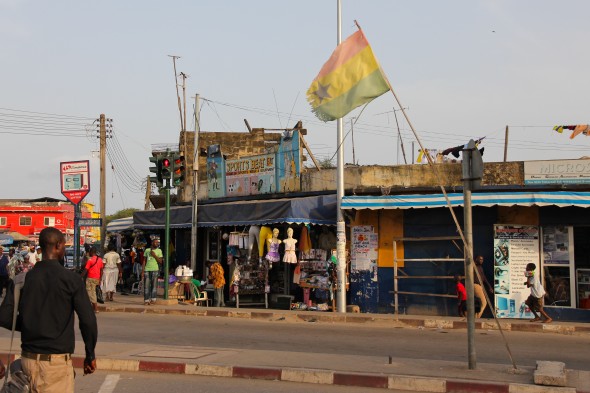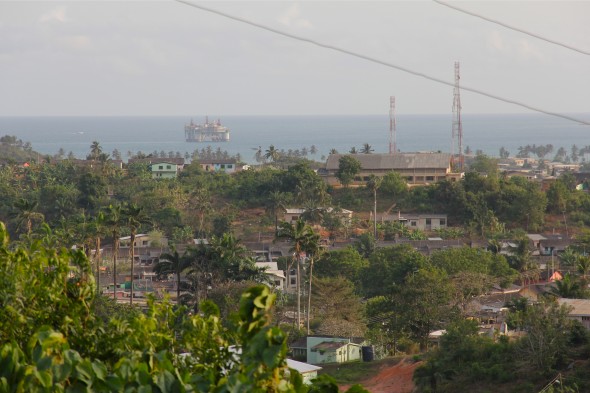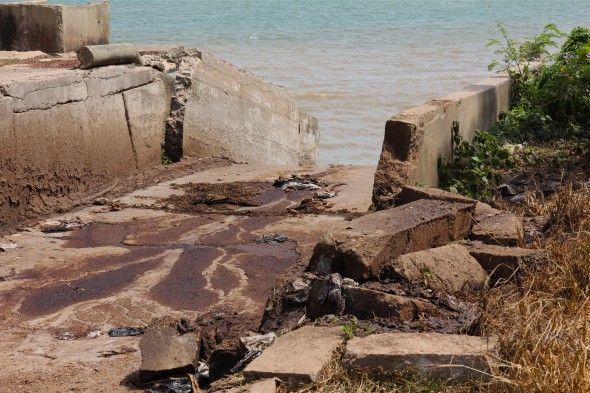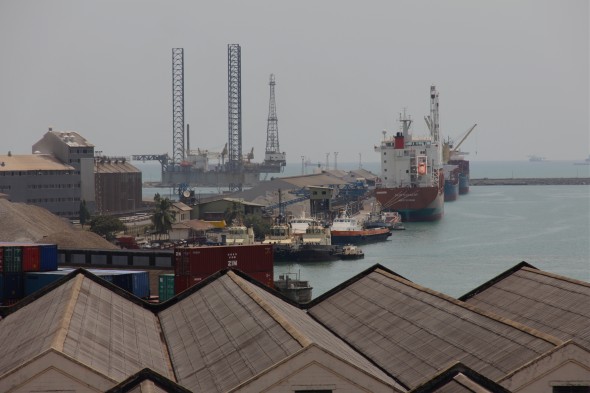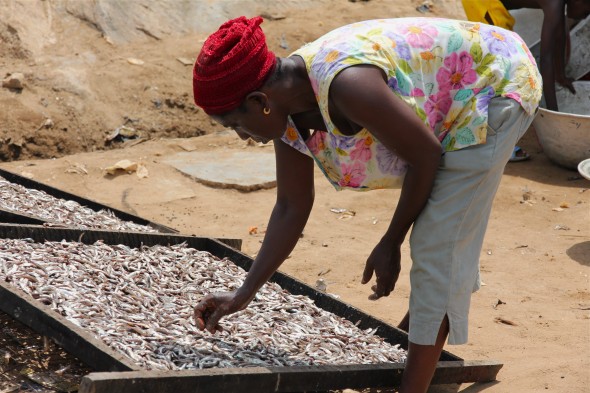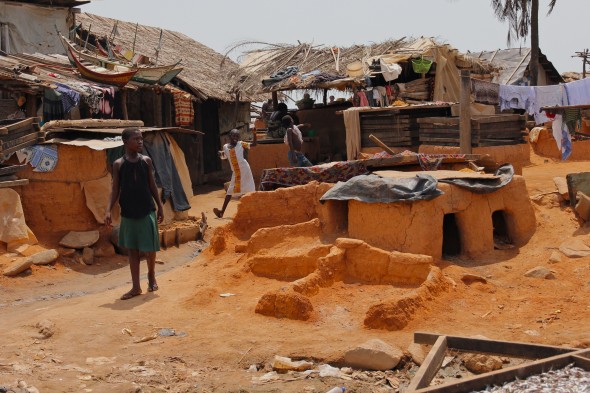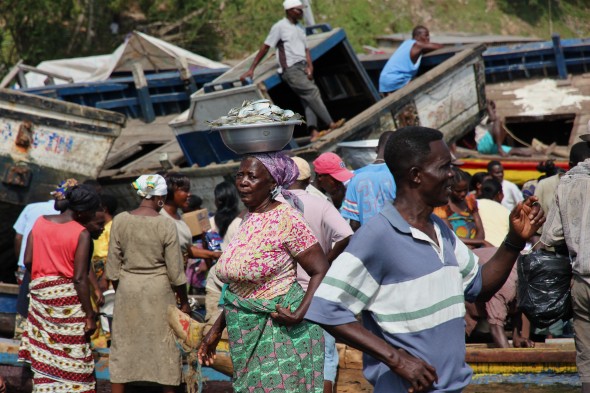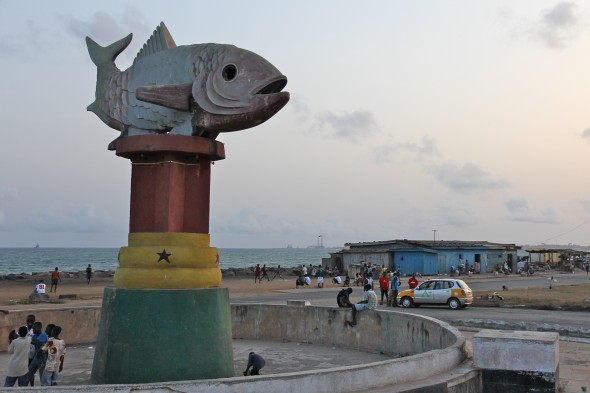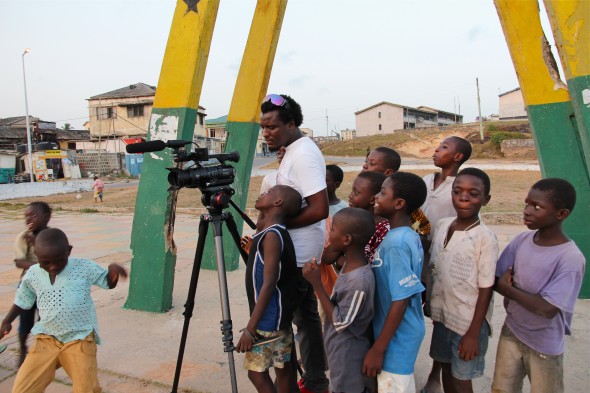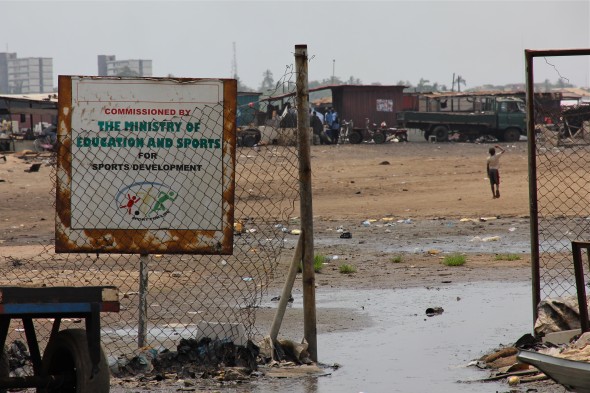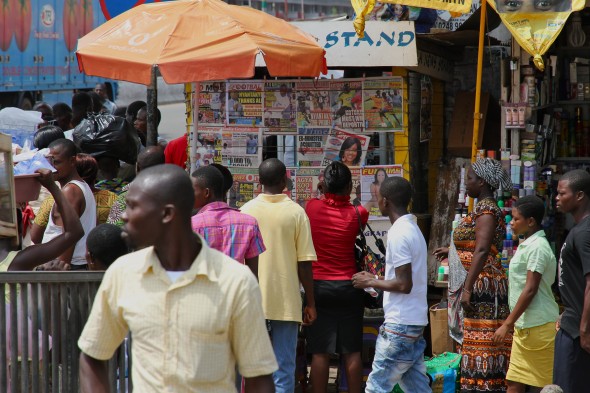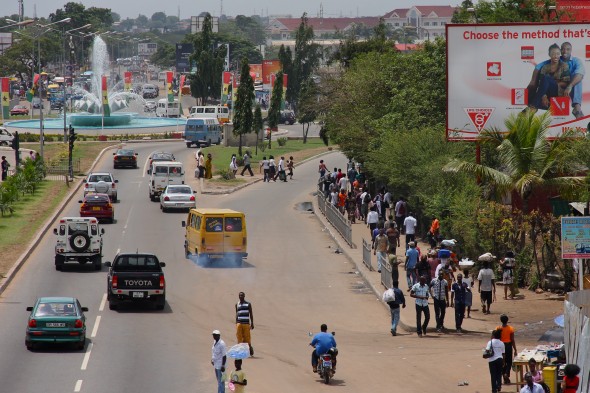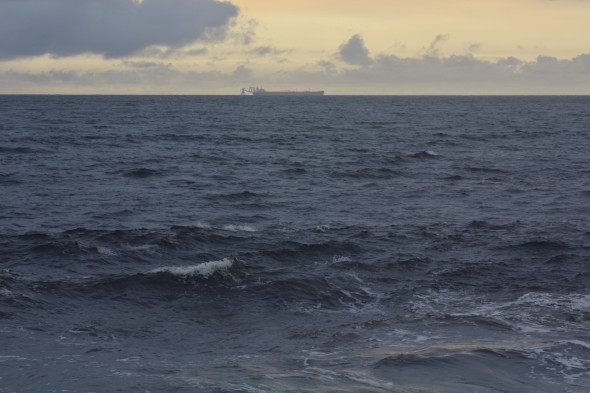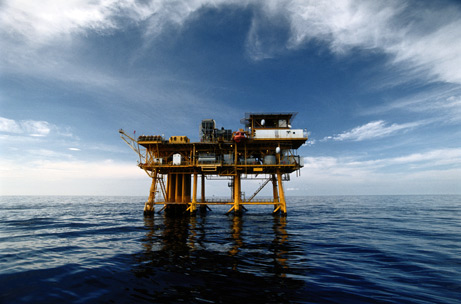Sigma-Base: Getting Ghanaians ready for oil industry jobs
Sigma-Base Technical Services, a private job-training center in Takoradi, recently held a graduation ceremony (or a “passing-out ceremony” as it’s called here) for its first class of 913 trainees. The students, trained in welding, pipefitting, electrical work or specialized construction, were participants in a new program intended to create a qualified labor pool for Ghana’s new oil industry.
With the Sigma-Base training under their belts, the graduates can pursue jobs with any number of companies servicing the oil and gas sector.
“We are already qualified to perform 60% of the jobs in the oil industry,” says Ebow Haizel-Ferguson, the Corporate Affairs and Community Relations Director at Sigma-Base. He disputes claims from officials that Ghanaians will not be qualified for wide-scale oil and gas employment before 2020.
Ghana gets the VICE treatment
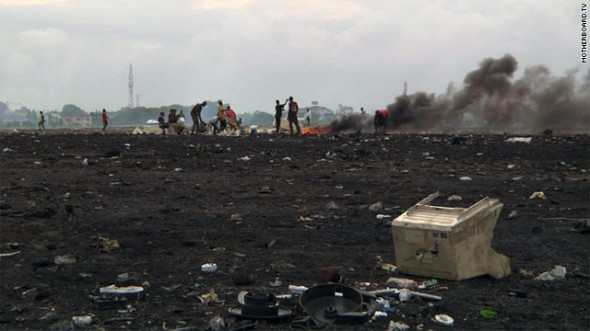
Inside the criminal world of Ghana's e-mail scam gangs. Brought to you by Vice Magazine/Motherboard.tv via CNN
Ghana is doing extremely well by African standards. Of course “by African standards” means there are dirt roads leading past the brand-new, gold-columned presidential palace, and roughly 1% of the country are blowing their country’s GDP at bars with $50 cover charges while the other 99 are selling bags of water at stop lights. They have huge mineral reserves and lots of foreign money invested in their extraction, all of which ends up concentrated in the hands of the president, his cabinet, and whichever of their cousins they’re getting along with at the time. – Vice via CNN
Hey, that’s some hard-hitting commentary. Never mind that there are no dirt roads leading to the “presidential palace,” or that 99% of Ghanaians do not sell bags of water at the side of the road. What counts is attitude and this writer is sure one fierce social critic.
Vice Reporter Thomas Morton did his hipster “journalism” number in Ghana last summer and in the process managed to outrage many of the country’s bloggers, a demographic that ought to constitute a fan base for Vice in Ghana.
Deepwater Horizon: Can it happen again?
I interviewed the Ghanaian EPA’s “focal person for oil and gas” Friday afternoon in Takoradi.
I asked him about the Deepwater Horizon disaster and what Ghanaian authorities believe necessary to reduce the chances of a similar event occurring here. I wanted to hear about policy directives and stepped-up enforcement of existing laws, for example. Instead, I heard that the Deepwater Horizon accident was “unique” and that something like it “could never happen in Ghana.”
Between the cheerful confidence of the EPA official and the “we’ve got safety under control” assurances of speakers at the Ghana summit, you could be forgiven for thinking that things have dramatically changed in the last year. Things have changed, but unfortunately it appears that too much remains the same.
The Ghana Summit 2011
The oil and gas industry trade show rolled into town this week. For three days conference delegates sat through strategy sessions, chatted with exhibitors and attended networking coffee sessions, lunches, gala cocktail parties and dinners. The halls of the Accra conference center were filled with exhibitors stands: from Tullow Oil, lead partner in Ghana’s Jubilee Field, to distributors of work boots and catering services, everyone wanting in on Ghana’s oil business was here.
Hands off Africa!
That was the message in the streets of Accra on April 12th.
As the French TV coverage of the event put it, “people in many African countries, including Ghana, do not approve of the French action in Ivory Coast.”
Report card: Ghana oil gets a “C”
The report card is out and Ghana’s overall grade is a “C.”
The government (executive branch), the parliament, the donor partners, the oil and gas companies and civil society all received average grades of “C” (fair). As Mohammed Amin Adam, National Coordinator of the Civil Society Platform, explained, the objectives of the readiness report and the accompanying report card are to acknowledge progress made to date and to encourage renewed efforts moving forward. That’s why, according to Amin, the grading system was fairly easy.
Report card time!

Ghana’s oil industry is getting its first term report card! The Civil Society Platfrom on OIl and Gas will hand out the grades Monday morning in Accra. The media is invited and I’ll be there to find out who has been a good student and who needs to show more effort.
A great day for oil!
Transocean, remember them?
Transocean Ltd. had its “best year in safety performance” despite the explosion of its Deepwater Horizon rig that left 11 dead and oil gushing into the Gulf of Mexico, the world’s largest offshore-rig company said in a securities filing Friday.
Accordingly, Transocean’s executives received two-thirds of their target safety bonus. Safety accounts for 25% of the equation that determines the yearly cash bonuses, along with financial factors including new rig contracts
The payout contrasts with that for 2009, when the company withheld all executive bonuses after incurring four fatalities that year “to underscore the company’s commitment to safety.”
Oil City: Where are the Jobs, pt. 2
“Oil City,” Ghana’s new Wild West. There may not be many oil industry jobs here for the moment, but the fortune seekers, schemers and scammers have arrived and there’s snake oil for sale on every corner.
Here’s part of one email I recently received (I’ve removed names and numbers):
I was offered a vacancy by an engineer whom does recruiting for jubilee oil rig (tel +233-xxx-xxx-xxx Mr. xxxxx) he told me to obtain visa etc we had to pay in 490 us dollars via western union and that he would get back to me he now is asking for a further 1699 us dollars for some documentation levy payable to Ghana Maritime labour law it is for the certification of employment and travel documents under GMA prior before delivery as a new employee joining the Ghana jubilee oil field.
Union Man: Where are the jobs?
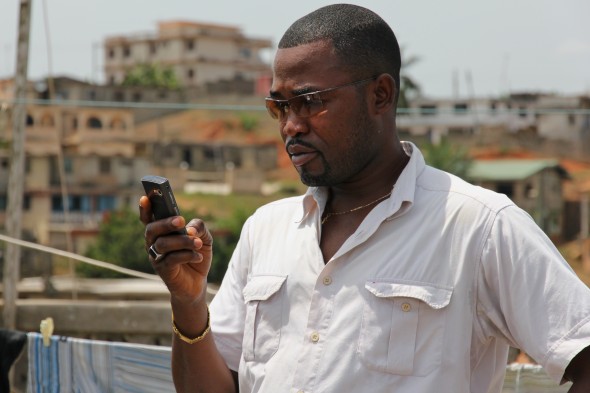
Francis Sallah, Regional Industrial Relations Officer, Ghana Trades Union Congress. Photo by Christiane Badgley
Nothing seems to capture the public imagination like oil. The real impact of the oil industry on local communities in Africa is in plain sight from Nigeria to Chad to Equatorial Guinea and beyond, but this hardly dampens public enthusiasm for the black gold.
In Ghana, things were no different. When Ghanaians found out there was oil off their coast, a sense of excitement spread across the country. Optimistic and at times unrealistic statements from various company officials and ministries added to expectations. Continue reading . . .
Western Region: We will stand by our oil revenue petition
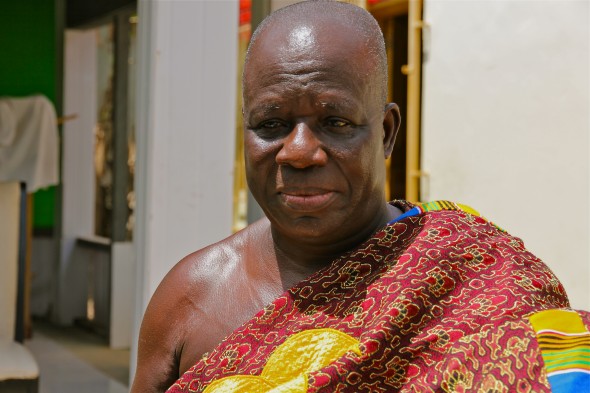
Awulae Annor Adjaye, President of the Western Nzema Traditional Council, told us in a recent interview that the Western Region will continue to press for a share of Ghana's oil revenues.
Ghana may have passed a Revenue Management Bill that has been largely praised (albeit with some caveats) both at home and abroad, but that does not mean that all the contentious issues have been resolved. The Western Regional leaders have no intention of abandoning their claim for a share of the country’s oil wealth and this is likely to be a major sticking point moving forward. Continue reading . . .
Takoradi: The BBC and me…
Driving around Takoradi we noticed BBC banners up at busy intersections and roundabouts. “Oil: a blessing or a curse?” the banners asked. Funny, isn’t it, how we keep asking this question, when time after time oil production follows the same cue cards.
A new country gears up to join the petroleum producers’ club and the president along with a few top ministers loudly proclaim that this time, here, oil will be a blessing and not a curse. Promises are made, speeches are broadcast and then the oil ends up being a curse – at least for those at the bottom rungs of society, the people who desperately need jobs and pin all their hopes on the elusive black gold.
Oil isn’t a blessing, but it doesn’t need to be a curse, either. Seems like we need to move beyond this supernatural, good v. evil framework that really doesn’t move anything forward. Continue reading . . .
Deepwater Horizon spill leads to new safety measures…in the U.K.
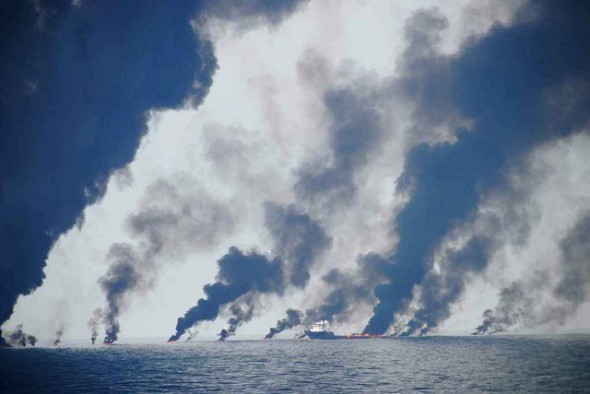
Deepwater Horizon Oil Spill - FSU Sampling Cruise - June 22, 2010. Photo courtesy Dr. Oscar Garcia / Florida State University.
I’ve been asking various officials in Ghana what they’re doing about regulation in light of the Deepwater Horizon disaster. I’m assured that the BP disaster is being studied. I hope to have an opportunity to ask similar questions to Tullow and other oil company executives sometime soon. In the meantime, I scan the trade press for news. Today, for instance, I found out that work is underway on a new well-capping device for the U.K.’s offshore industry. Continue reading . . .
Shit
Shit.
That’s what this is and that’s all I could say when I saw it.
The “this” in question is the sewage of the Sekondi-Takoradi metropolitan area. Government trucks drive the stuff over here and dump it on to the beach just down the road from a fishing village.
Apparently kids in the village are getting all sorts of eye and ear infections and the fishmongers have to lie about where the fish comes from or no one will buy it. People say it smells like…shit. Continue reading . . .
Offshore drilling: “systemic” safety problems?
How safe are Ghana’s offshore oil drilling operations? According to officials I’ve interviewed here so far, Ghana’s oil operations are safe, secure and pose no particular threats to people or the environment. An EPA official in Takoradi assured me that the waters off the coast of Ghana are much calmer than those in the Gulf of Mexico. He also reminded me that the Deepwater Horizon spill was due to human error and that Ghana is constantly verifying every aspect of the oil operations in order to avoid any mistakes. Spin. Of course. After all, what are officials going to tell me? That they’re worried? Continue reading . . .
Abuesi
Imagine a place where fishing is the only game in town. Then imagine just how nervous the residents must be about offshore oil drilling.
The place is Abuesi, a small town at the water’s edge about 30 minutes down the road from Takoradi.
Fish and oil
Fish and oil: What’s at stake?
Here in Ghana, oil is expected to account for about 5% of the GNP when production gets up to speed. The fishing industry also contributes nearly 5% to the GNP. The number of jobs for Ghanaians that the oil industry may create is still unknown, but there’s no mystery about fishing. Approximately one-fifth of Ghana’s population depends on fishing. That’s huge, but in the Western Region fishing communities have to accommodate the oil industry. The oil industry meanwhile doesn’t have to do anything for the fishermen. Continue reading . . .
Sekondi sunset
We’re now in Sekondi-Takoradi, “Oil City.” Oil is in the news, but this place is all about fishing. Shooting along the Sekondi seafront at the end of the day, we were joined by a bunch of kids for an impromptu video workshop.
No man’s land
Who cares about the environment?
The acrid smell of burning plastic wafts out from Accra’s vast e-waste dump known as “No man’s land.” The thick smoke crosses the Agbogbloshie market and the notorious “Sodom and Gomorrah” neighborhood where many of the dump’s workers live. Entering No man’s land the fumes are unbearable. Continue reading . . .
Accra bustle
Traffic, construction, commerce, road work, billboards, people on the move…Accra is bustling, but I still have a terrible internet connection.
Ghana dreaming…
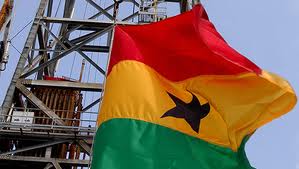 “Ghana dreaming. That’s what you should call your story.” On a packed flight to Accra, I ended up by chance seated next to an American oil and gas professional who has been living in Ghana and working throughout the Gulf of Guinea for the past 15 years. We started chatting and I told him I was going to Ghana to report on the country’s new oil industry.
“Ghana dreaming. That’s what you should call your story.” On a packed flight to Accra, I ended up by chance seated next to an American oil and gas professional who has been living in Ghana and working throughout the Gulf of Guinea for the past 15 years. We started chatting and I told him I was going to Ghana to report on the country’s new oil industry.
He wasn’t at all excited about Ghana’s entry into the petroleum club. This man looks at the oil industry in terms of job prospects and for him Ghana’s Jubilee field is a bust.
As he explained to me, deepwater drilling is a highly specialized operation; the equipment and materials arrive from outside the country, are installed by specialized expat crews and then provide virtually no business for local maintenance companies or jobs for oil workers.
For this freelance operator the idea that Ghana’s oil industry is going to create a business boom is no more than a pipe dream. Continue reading . . .
Deja vu all over again
In a few weeks Ghana’s first oil will ship and lately the news coming from Accra has been less than encouraging. There’s been a lot of talk the past few years about making oil revenues work for the Ghanaian people (with references to avoiding Chad’s problems), but now that the country is moving from talk to action there’s cause for concern.
Deepwater Drilling
I just came across this highly informative post, “Deepwater Drilling — What Can go Wrong?” on the Ghanaian blog, CROSSED CROCODILES.
Check it out. The unfolding disaster in the Gulf of Mexico is indeed a cautionary tale for Africa. Angola, Equatorial Guinea, Gabon, Cameroon, Nigeria, Ghana… deepwater drilling is happening or on the horizon in a number of countries.
Despite the massive efforts of the oil companies and state and federal authorities, the situation in the Gulf of Mexico is spinning out of control. The thought of a similar accident occurring off the coast of West or Central Africa is terrifying.

